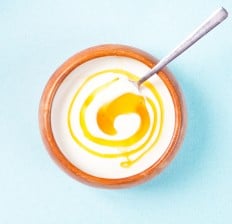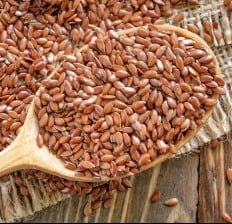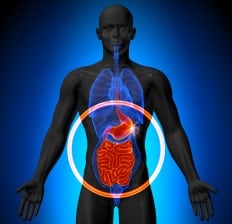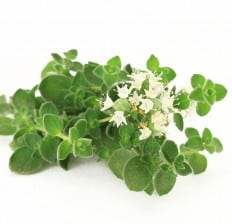Leaky gut syndrome is a condition where undigested proteins like gluten, toxins and microbes can pass into the blood stream. Another name for this condition is “intestinal permeability” which means the “tight junctions” or the gateway between the intestinal wall and blood stream have been damaged and are allowing the undigested particles to pass through the intestinal wall. When these particles enter the blood stream it will cause system wide inflammation and can initiate an immune response in the body.
Over time if leaky gut is not healed, it can lead to food sensitivities, arthritis, inflammatory bowel disease, skin issues like eczema, hypothyroidism, adrenal fatigue, depression, anxiety, ADHD, nutrient malabsorption and autoimmune disease. Most doctors will tell you that repairing leaky gut is difficult and it takes time, but for most people who follow my 4-Step Plan, it’s possible to see results fast.
Along with changing your diet, taking the right supplements can make a big difference in fixing leaky gut. These are the 10 key leaky gut supplements that I have recommended to my patients for years that you may consider adding into your daily health routine.
Top 10 Supplements for Leaky Gut

1. Probiotics
In my opinion, supplementing with a high-quality probiotic is absolutely necessary for gut health today, especially for people with signs of a leaky gut. This is why I will give more attention to this section than the other 9, because without a viable probiotic solution, it’s virtually impossible to heal leaky gut
In my guide on probiotics benefits, I highlight the importance of learning about the different types of strains of probiotic, and why the probiotic benefits experienced with one probiotic strain may be completely different from the health benefits seen from another probiotic.
Case in point: certain strains of probiotics enhance immune function, whereas, others promote health or hormone balance. It’s always best to take specific strains according to the benefit that you need. This will help you maximize the natural healing benefits for your needs. So, instead of taking a “multivitamin” approach and filling your body with all sorts of bacteria that you may not need, be selective and strategic about what strains you decide to take.
When reading probiotics labels keep a look out for the genus, species, and strain. The label should also indicate the type of CFU’s (colony forming units) that are present at the time of manufacturing. When purchasing a probiotic supplement always consider these 5 key aspects.
Brand Quality –
Chose companies that you trust and that you know use higher quality ingredients.
High CFU Count –
Make sure that you only take a probiotic that has at least 15 billion CFUs.
Strain Diversity –
Also, look for a supplement with multiple bacterial strains.
Survivability –
Keep a look out for beneficial strains like:
- Bifidobacterium bifidum (1)
- Bifidobacterium longum (2)
- Bifidobacterium breve (3)
- Bifidobacterium infantis (4)
- Lactobacillus casei (5)
- Lactobacillus acidophilus (6)
- Lactobacillus bulgaricus (7)
- Lactobacillus brevis (8)
- Lactobacillus rhamnosus (9)
- Bacillus subtilis (10)
- Bacillus coagulans (11)
- Saccharomyces boulardii (12)
Research –
And finally, do your own homework and look for brands that have strains that support your specific needs.
Recommended Daily Intake
For most people, taking 2-4 caps daily of high quality probiotic capsules daily is the recommended dose.

2. Fiber
Almost equally important as probiotics, fiber ranks as #2 on my list. Most people don’t realize this, but without fiber, probiotics cannot live. Essentially indigestible fibers (i.e. prebiotics) are the food the helps probiotic bacteria thrive in our gut. (13)
This is why a diet rich in high fiber foods like sprouted chia seeds, sprouted flaxseeds, and sprouted hemp seeds is so important. If you have severe leaky gut, however, you may need to start out getting your fiber from steamed vegetables and fruit if your gut is extremely sensitive. If you gut isn’t overly sensitive aim for 30-40 grams of fiber daily.
3. Enzymes
For the greatest digestive benefit, take one or two capsules of digestive enzyme supplements before and after your meal. Enzymes help completely break down proteins, complex sugars and starches which can reduce intestinal inflammation.
I would recommend a full spectrum enzyme supplement that contains the following:
- Protease – breaks down proteins (including gluten)
- Amylase – breaks down starches
- Lipase – breaks down fats
- Lactase – breaks down lactose in dairy
Also, there are specific enzymes that support the body in breaking down certain types of food. If you know you have a gluten or dairy intolerance, you can buy a formula that helps with that specific issue.
4. L-Glutamine
An essential amino acid, the anti-inflammatory L-glutamine contains some significant health benefits including repairing the gut and intestinal lining. Another benefit of taking L-glutamine regularly is that helps thicken your cell walls, which has been shown clinically to resist Staphylococcus aureus bacterial infections. (14)
I recommend taking 2-5 grams of L-glutamine powder 2-3x daily. Also, the best form of glutamine to take is L-alanyl-L-glutamine.

5. DGL Licorice Root
One of my favorite adoptogenic herbs is licorice root. Proven to help increase hormone availability, this tasty root can also alleviate adrenal fatigue because it aids in the absorption and metabolism of cortisol. (15)
Licorice can also help support the body’s natural processes for maintaining the mucosal lining of the stomach and duodenum. It is especially beneficial if someone’s leaky gut is being caused by emotional stress.
Licorice contains glycyrrhizin, which has been known to cause edema, and hypertension, so when taking this supplement, it is best to get deglycyrrhizinated licorice, (or DGL) which has had the glycyrrhizin removed. I recommend taking 500mg 2x daily of DGL licorice root.
6. Collagen Powder
The secret behind the power of bone broth is collagen, the main supportive proteins that gives bone, cartilage and tendons their strength. Once cooked it becomes “gelatin.” Supplementing with collagen or gelatin is important because it can help boost your gastric juices and aid is restoring the integrity and health of your mucosal lining.
Collagen also contains the amino acids proline and glycine which are essential building blocks to repairing damaged intestinal lining. Drink 8-16oz of bone broth daily or take 2 tbsp of collagen protein 2x daily.
7. NAG
N-acetyl glucosamine has gain recent popularity in mainstream medicine because it is now widely accepted that it can help protect the lining of your stomach and intestines.
Because of its anti-inflammatory effects, NAG has also been reported to help with osteoarthritis and inflammatory bowel disease (IBD), including ulcerative colitis and Crohn’s disease. (16)

8. Quercetin
Known to improve gut barrier function because it helps seal the gut lining by creating tight junction proteins,quercetin holds a wide range of health benefits. According to the University of Maryland Medical Center researchers, the key to quercetin’s effectiveness is its ability to keep inflammation at bay.
“Quercetin acts like an antihistamine and an anti-inflammatory, and may help protect against heart disease and cancer. Quercetin can also help stabilize the cells that release histamine in the body and thereby have an anti-inflammatory effect.” (17)
9. HCL with Pepsin
Hydrochloric acid is the main acid in the stomach that breaks down protein so that it can be predigested before it enters the duodenum and the intestines. Most people suffering with leaky gut have suffered from a low stomach acid due to medications, birth control or antibiotics.
Another condition connected to leaky gut syndrome is a condition called SIBO (small intestinal bacterial overgrowth). SIBO can occur when the stomach doesn’t produce enough HCL and bad bacteria can take residence in the small intestine.
Supplementing with HCl that includes pepsin, is a heartburn, and GERD remedy that is also regularly used to treat hypochlorhydria, when the stomach is unable to produce hydrochloric acid. Often bringing the stomach acid up to the correct level will help heal leaky gut and SIBO.
Your natural health care provider should determine the amount of HCL you need. If you do decide to take HCL with pepsin on your own, then make sure you only take it with meals that contain protein and start off with 1 capsules then add 1 extra cap per meal until you feel warmth or pressure in your stomach. Once you feel that warming sensation decrease the capsules of HCL you are taking per meal by 1 capsule. And again, only take HCL with meals that contain protein.

10. Anti-Fungals
Anti-fungal agents like caprylic acid, cellulose, and oil of oregano can be taking for short term treatment of leaky gut syndrome. One of the main causes of leaky gut syndrome can be imbalance flora in your gut including an overgrowth of yeast and candida.
These anti-fungals help balance the good and bad bacteria in the gut, which takes the strain off your intestines and helps them heal.
Typically, you would first build up the health of your digestive tract, then take anti-fungals for 10-14 days. Immediately following that period, it is recommended to take an increased dose of probiotic supplements along with consuming loads of probiotic rich foods. This will ensure that you rebuild the gut health and help maintain long term health.

No comments:
Post a Comment